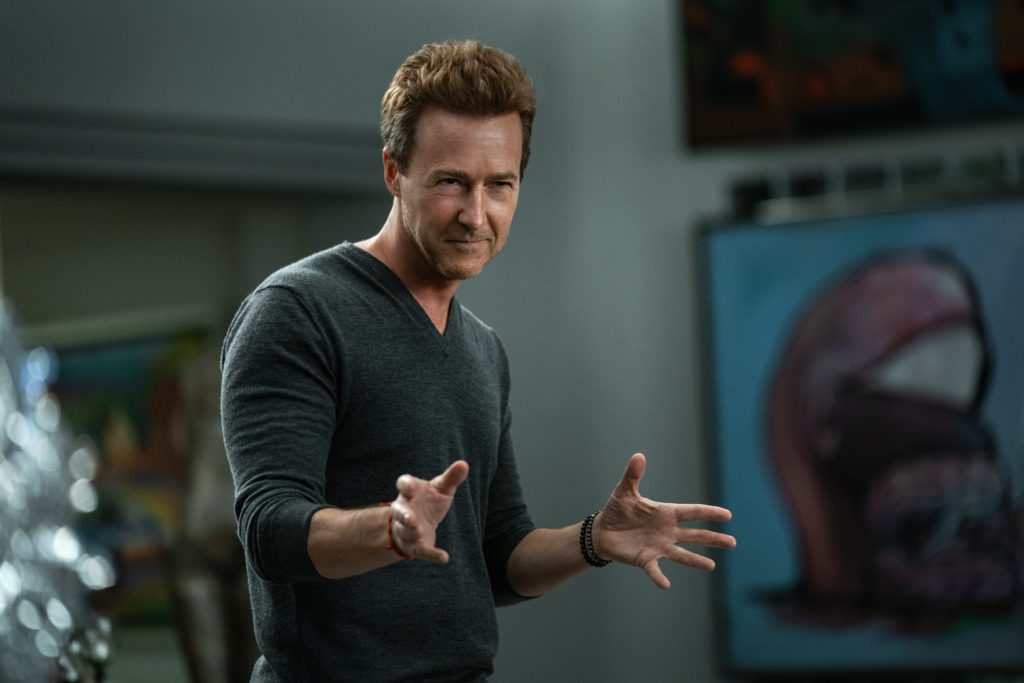Edward Norton returns after his previous cover story in 2019. His latest is Glass Onion. The murder mystery starring Daniel Craig as master detective Benoit Blanc. We spoke to Norton in London about his selective choices, the spotlight and whether he should actually audition again?
Text: Jorrit Niels Photos: Netflix
Knives Out from 2019 was director Rian Johnson's love letter to the whodunit genre that made Agatha Christie great. Oh yes, and a hit. Such a big hit that Netflix paid $450 million for the two sequels. One of the biggest movie deals in the history of the streaming service.
The sequel is called in full Glass Onion: A Knives Out Mystery. The film once again follows detective Benoit Blanc as he travels to a Greek island with an all-star cast to solve a mystery and ultimately a murder. Besides Craig as the quirky Blanc, we see Edward Norton, Leslie Odom Jr, Kate Hudson and Dave Bautista.
Norton plays tech entrepreneur and philanthropist Miles Bron. Brash and confident, he is generous to his old friends and supported them all to realise their potential in their various fields. In return, he expects their loyalty. Their extravagant annual reunion is always conceived, organised and financed by Miles, this year in his sprawling villa on his private Greek island.
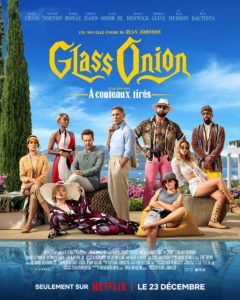 The result is a funnier film than the original and bigger and more precisely designed than Knives Out. Craig convinces as the eccentric mix between Hercule Poirot and Columbo. Edward Norton has plenty of examples to draw from: "The tech world is in flux and I have plenty of real-world examples to draw from. Without mentioning people by name. And because the director is such a good writer, he balances a contemporary satire of social dynamics happening in the world without bludgeoning you to death with anything."
The result is a funnier film than the original and bigger and more precisely designed than Knives Out. Craig convinces as the eccentric mix between Hercule Poirot and Columbo. Edward Norton has plenty of examples to draw from: "The tech world is in flux and I have plenty of real-world examples to draw from. Without mentioning people by name. And because the director is such a good writer, he balances a contemporary satire of social dynamics happening in the world without bludgeoning you to death with anything."
"What I found most challenging was playing with such a large ensemble"
Apart from being a murder mystery, there is also a lot of comedy in it. Not something Norton necessarily became known for. Though according to Norton, this is sometimes even more complex than the dramatic roles we know the 53-year-old actor mainly for.
"Rian Johnson, the director, is a craftsman to the extreme. He has a great satirical eye. What I found most challenging was playing with such a large ensemble. Something I can actually best compare to a drama group. How do you get the whole club on the same level. That one doesn't go too farcical and the other too serious."
How to find out?
"The director's job then is to act as a tuning fork. Either whistle me back or give me 'more rope'. That works very liberating and there are only a few directors who can really do that. In the end, it's all about trust. If I trust the director I will go as crazy as I can during that one take, but I trust when he says, 'Ed, it's okay to tone it down now'. I don't have such a big ego that I would go against that. Beyond that, it helps that Rian and Daniel Craig had established a certain base with the first part. I knew what I was getting myself into."
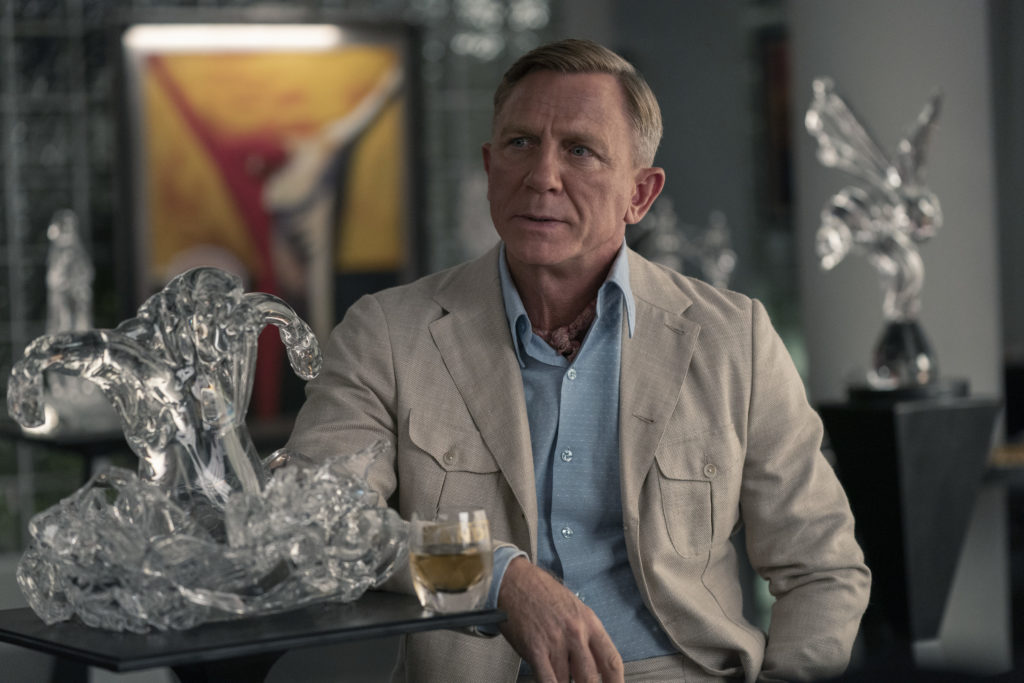
You seem to go more sparingly for the big roles, do you notice you have become more picky?
"My priorities are elsewhere. I think that's it. I used to base my choices sometimes just on whether I had done that genre before. Oh, a film about muggers, what would that be like? Why not? That in itself used to have a certain appeal for me."
You don't have that now?
"No. Although, never say never. But I don't think I would choose a project now purely because of what kind of film it is. The only constant is that I prefer to see my roles as far away from my own personality as possible. That fascinates me. And in the process, you simply grow as a person. You get older, you get a partner, a family. Speaking for myself, that strongly influences the roles I choose. Do I really feel like investing that time in a film I'm not fully convinced of? Do I want to be away from my family for that long? When you are young, your ambition is to work. Pure and simple work, practising your craft. You want to flex your muscles. Your life is your work. If you take it too seriously, it's all-consuming. Now that I enjoy the good fortune of having a family, there is a strong trade-off on the personal front."
Is that a realisation of recent years? "Certainly for the last decade and probably longer. You develop a nose for the type of person or project you are comfortable working with and on. That comes from enough experience over the years."
"I have never believed that frequency is the hallmark of the greatest work"
Have you never been tempted to go for something where you had your doubts?
(grins) "Of course, I am an actor and we are a vain sort. I know full well the chemistry I need to have with a script or director. That may not be there one hundred per cent, but you still start something or get seduced into something that you hope will work out. If I am completely honest, it is mostly in vain. But oh well, that ultimately makes you a lot more disciplined to 'spot' the collaborations that work well or not. It helps me to select with more discernment now."
And so without the urge to work to stay mostly in the spotlight?
"I have never believed that frequency is the hallmark of the greatest work. I sometimes get disappointed in people I see too much. For me, there is a kind of narcissism in the assumption that people have to see you in something every year. Don't get me wrong. If I get the chance to do three films in a year because they are simply too good to pass up, I work my ass off."
Despite that luxury of choosing what you want to do and an impressive career, does the fear ever disappear if and when the next role comes?
"No! Any actor will tell you that. You know the five acts of every actor, a famous joke in the world? It goes like this: who is Edward Norton? Maybe Edward Norton. Bring me Edward Norton. Bring me someone like Edward Norton. And who is Edward Norton? I can tell you, sometimes that's closer to the truth than you think."
That fear is there despite never having to audition again?
"One hundred per cent. And you know, it's crazy, but I've always enjoyed auditioning. Even when I was young. Some actors shouldn't think about it, but I enjoyed it."
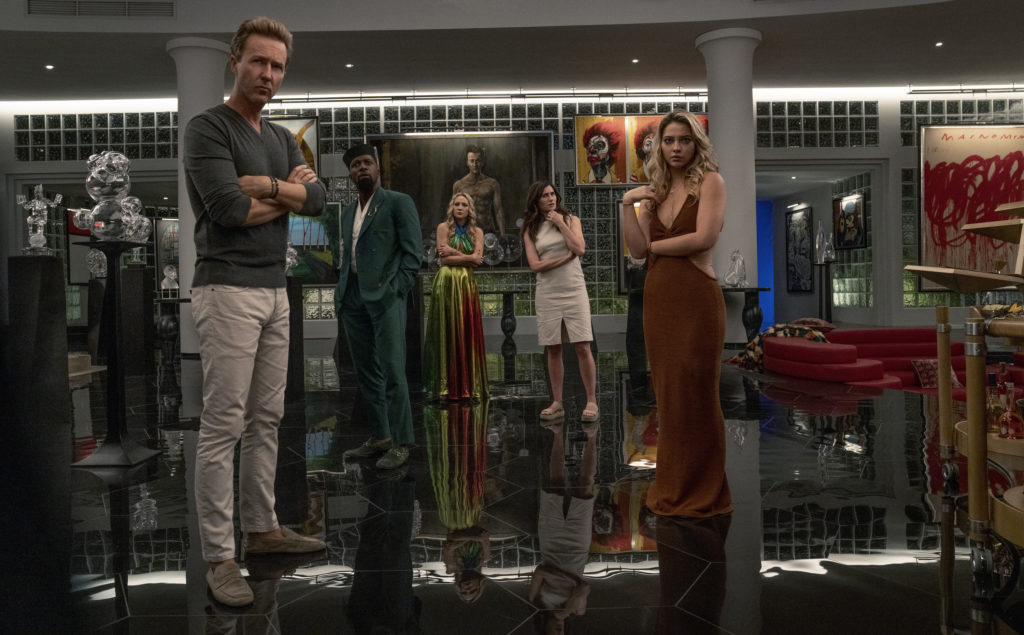
A rare quirk.
"Haha, absolutely. Maybe it's because I worked for a casting agent as a young actor. I was then the actor with whom the auditioning actor had to play. That was very enlightening. The majority of the actors were quite good, but they just weren't the right match for the role. Because you have blue eyes, just not the right look in combination with the rest of the cast. It's often not even down to your acting skills, so don't worry about that. It wasn't a rejection, but an opportunity to show your ability."
An acting exercise.
"But also a chance to spend time with the creators and find out if you actually feel like hanging out with them for months. That's what I would use an audition for now. Even though I don't really audition anymore, it's more like long lunch dates or dinners now, where you test each other to see if it clicks."
That's working with people. But once on set, how do you deal with the responsibility of being number one on the callsheet?
"I always try to put down a certain level of professionalism. When I was young, I took a good look around me to figure out how I wanted to behave on a set. And how not to. As actor, producer and sometimes director, I have a high EQ when it comes to seeing who disturbs the atmosphere on a set. That's the last person you want to be on a set."
"My priorities have shifted"
Which in turn affects working with certain people?
"Very much so. Why on earth should I work with you again when you're just being difficult on a set for the sake of being difficult?"
After some 30 years of acting, what still surprises you about the profession?
"I had that with this film. Then I see a certain scene and wonder why I limited myself in that scene. Why did I do that scene, for which we got six takes, six times exactly the same? Why didn't I take a little more risk?"
And why was it?
(laughs) "Please tell me. Making films is like moulding a piece of clay. I should know that by now! I should feel free to experiment at that point. But sometimes your mind works in a crazy way. No matter how much experience you have, your mind can shoot into convulsions. Because this is what usually works for me maybe? So as a result, I apparently sometimes don't break free from that rigidity. It has taught me to think about a role more elastically in the future anyway. The bottom line is that you should always keep pushing yourself."
Your brain is more stubborn than you think.
"I think so. Ego, I dare say, at least it is not. If I respect you and you give me tips or instructions, I will gladly take it from you. I think it's a basic setting of your brain to hold on to something that worked in the past. I sometimes look at scenes and regret that I hadn't done it this way one take, another take this way and the last take even more extreme. Because, who knows what you'd get!"
Also, film is mostly digital now, does that have anything to do with it?
"There may be something in that. I grew up shooting on film. There you only had a few chances to get it right, otherwise you simply ran out of film roll. It may be that subconsciously I have yet to get used to the freedom of time and choices that running with a hard drive brings."
Glass Onion: A Knives Out Mystery can be seen on Netflix
